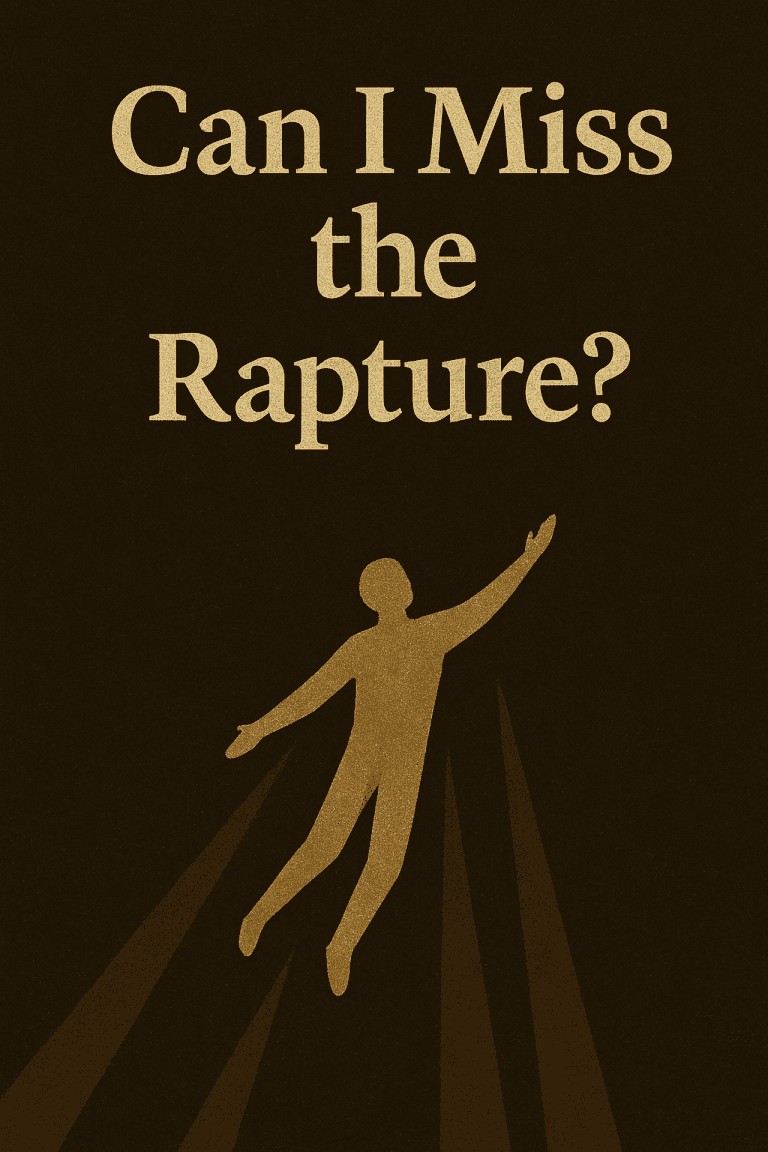Fruit That Follows Faith: Why Easy Believism Ignores Obedience
You cannot separate the root of faith from the fruit of obedience. If the root is real, the fruit will show. That’s not legalism—it’s biblical Christianity. But easy believism doesn’t teach that. It offers a gospel with no follow-up, no transformation, and no cost. Just say the prayer, check the box, and move on.

It’s a gospel that ignores the entire witness of Scripture. Because every time someone truly believed in Christ, something happened. Their life changed. Their desires changed. They followed Him. Not perfectly. Not all at once. But visibly. The kind of faith that saves is never alone. It brings repentance, obedience, and fruit.
That’s the test easy believism refuses to take. And it’s why so many people who claim to be Christians still walk in darkness, bear no fruit, and live in rebellion to Christ—while believing they’re safe.
What Does Saving Faith Produce?
Faith is not passive. It moves. And where there is genuine belief, there will always be evidence. Jesus made this abundantly clear.
“Every branch in Me that does not bear fruit He takes away… By this My Father is glorified, that you bear much fruit and so prove to be My disciples” (John 15:2,8).
The fruit doesn’t save you—but it proves you’re saved. The apostle Paul gives the same pattern:
“The fruit of the Spirit is love, joy, peace, patience, kindness, goodness, faithfulness, gentleness, self-control…” (Galatians 5:22–23).
Where the Spirit dwells, fruit grows. That means there’s no such thing as a Christian with no change, no conviction, no growth, and no desire for Christ. There may be weakness. There may be struggle. But the direction of their life has shifted. They are being conformed to the image of Christ.
That’s the life easy believism does not produce. Because it tells people they can believe without surrender.
The Pattern of Obedience
Obedience to Christ is not an optional upgrade. It’s the mark of a true believer.
Jesus didn’t say, “If you believe in Me, keep doing whatever you want.” He said, “If you love Me, you will keep My commandments” (John 14:15).
The apostle John was even more direct:
“Whoever says ‘I know him’ but does not keep his commandments is a liar, and the truth is not in him” (1 John 2:4).
Again, the issue is not perfection. No Christian obeys without failure. But the heart of a Christian longs to obey. They aren’t looking for how much sin they can keep and still be saved. They are grieved by it. They fight it. Because they want to honor Christ.
Obedience to Christ is not the means of earning salvation—it’s the result of receiving it. And Scripture makes no room for a fruitless Christian life.
What Easy Believism Gets Wrong
Easy believism tries to remove the offense of the gospel. It wants conversion without confrontation. Assurance without examination. Grace without change.
But the gospel Jesus preached was clear: “Repent, for the kingdom of heaven is at hand” (Matt. 4:17). Repentance isn’t just feeling bad—it’s turning from sin. It’s dying to self and following Christ as Lord.
Easy believism ignores that. It assures people they’re saved because they once made a decision—even if their life now denies Christ entirely.
“They profess to know God, but they deny Him by their works” (Titus 1:16).
This is what happens when the gospel is reduced to an invitation instead of a call to die. When faith is treated as a momentary agreement instead of a lifelong surrender.
It’s not just wrong—it’s deadly.
Warnings in Scripture Against Fruitless Faith
The Bible does not leave this issue in a gray area. In fact, the warnings are severe.
“Not everyone who says to Me, ‘Lord, Lord,’ will enter the kingdom of heaven, but the one who does the will of My Father who is in heaven” (Matthew 7:21).
That verse alone dismantles easy believism. These are people who claimed Jesus as Lord. But there was no fruit. No obedience. No relationship. And Jesus says to them: “I never knew you; depart from Me, you workers of lawlessness.”
This is not a call to live in fear—it’s a call to examine your faith. Paul says the same:
“Examine yourselves, to see whether you are in the faith. Test yourselves.” (2 Corinthians 13:5)
The test isn’t whether you once believed. It’s whether your life now bears the marks of one who belongs to Christ. The Holy Spirit does not enter someone without leaving evidence.
Didn’t Luther Struggle with “Faith Without Works Is Dead”?

Martin Luther didn’t deny that true faith produces fruit. But he famously struggled with the book of James. At one point, he called it “an epistle of straw,” not because he rejected its authority, but because he was concerned about how it could be misunderstood.
Luther had spent his early years under a system of works-based righteousness. The Roman Catholic Church taught that justification was a process—earned and maintained by sacraments, penance, and obedience. Luther’s breakthrough came from Paul’s declaration in Romans:
“The righteous shall live by faith” (Romans 1:17).
That gospel of grace changed everything for him. So when James wrote that “faith without works is dead,” Luther feared it might undermine justification by faith alone. But over time, even Luther clarified his stance. He didn’t reject James—he rejected the distortion of James.
Because even James never said that works save. He simply said that faith that saves is never alone. That’s exactly what Luther himself taught:
“We are saved by faith alone, but the faith that saves is never alone.”
The real disagreement wasn’t between James and Paul—or even Luther and James. The real divide was between the Reformers and Rome. Rome taught that obedience contributes to justification. The Reformers said obedience is the result of it.
Easy believism misses this completely. It ignores James altogether. And instead of overcorrecting like Rome did—by making works part of the gospel—it undercorrects by removing them entirely.
But Scripture holds both truths: salvation is by grace alone, through faith alone, in Christ alone—and that saving faith will be evidenced by a life of obedience.
A Gospel Without Fruit Is No Gospel At All
Easy believism insists that fruit is a bonus. Scripture says it’s a birthmark. A changed life isn’t the cause of salvation, but it’s always the consequence.
If you claim faith in Christ, but there is no obedience, no hunger for righteousness, no turning from sin, no fruit of the Spirit—then you are not dealing with weak faith. You are dealing with dead faith.
“Faith by itself, if it does not have works, is dead” (James 2:17).
That’s not legalism. That’s Scripture. And it’s a mercy that God warns us.
Because He is not calling you to try harder—He is calling you to come to Christ. To be born again. To repent and believe the gospel in truth. And when you do, the fruit will follow.
Don’t Be Deceived by Easy Believism
If your faith costs you nothing, transforms nothing, and produces nothing, it is not saving faith. It is easy believism. And it cannot save you.
Jesus didn’t just call you to believe He existed. He called you to follow Him.
“If anyone would come after Me, let him deny himself and take up his cross and follow Me” (Luke 9:23).
That’s not a call to comfort. It’s a call to death—and life. A call to die to sin and live for Christ. And that life will bear fruit.
Want to know more about the grace of God in salvation? Check out this free resource!
Walt Roderick is a Christian writer who cares more about biblical clarity than online applause. He writes to strengthen believers and confront spiritual drift.






